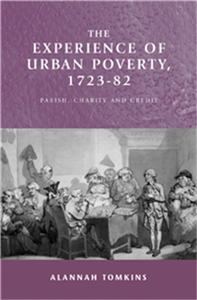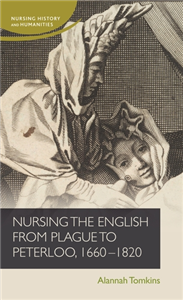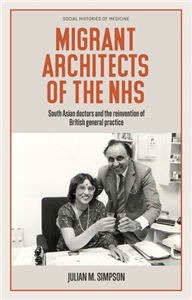Your Search Results
-
Hungry Tomato Ltd.
Hungry Tomato designs and publishes children’s (5-11 years) non-fiction books that stimulate and encourage reading and learning with fun and engaging topics. We call this soft learning for educational markets. In just a few years, we have published over 200 titles, with 700+ titles licensed in 19 different languages across the world. Our new pre-school (0 to 4 years) Tiny Tomato imprint launches in 2021 with books designed to promote learning through interaction. These books will feature tactile and engaging material to help nurture and encourage young children’s understanding, early learning and development Beetle Books (US) and Hungry Banana (UK) are two imprints with books featuring some of the best artists and authors in the world today. We work with established and well-known illustrators as well, as is part of our ethos, new and exciting young talent. Together we produce beautiful books that become bookshelf favourites in homes schools and libraries all over the world. For those kids that prefer fact to fiction we produce books that will keep those pages turning.
View Rights Portal
-
Promoted Content
-
Promoted ContentHumanities & Social SciencesOctober 2006
The experience of urban poverty, 1723–82
Parish, charity and credit
by Alannah Tomkins
This comparative study of urban poverty is the first to chart the irregular pulse of poverty's encounters with officialdom. It exploits an unusual methodology to secure new perspectives from familiar sources. The highly localised characteristics of the welfare economy generated a peculiarly urban environment for the poor. Separate chapters examine the parameters of workhouse life when the preconceptions of contemporaries have been stripped away; the reach of institutional charities such as almshouses, schools and infirmaries; and the surprisingly broad clientele of urban pawnbrokers. Detailed analysis of the poor is achieved via meticulous matching of individuals who fell within the purview of two or more authorities. The result is a unique insight into the survival economics of urban poverty, arising not from a tidy network of welfare but from a loose assembly of options, where the impoverished positioned themselves repeatedly to fit official, philanthropic, or casual templates of the 'deserving'. This book will be essential reading for historians of English poverty and welfare, and eighteenth-century social and economic life. ;
-
 Trusted Partner
MedicineJanuary 2025
Trusted Partner
MedicineJanuary 2025Nursing the English from plague to Peterloo, 1665-1820
by Alannah Tomkins
This book studies the negative stereotypes around the women who worked as sick nurses in this period and contrasts them with the lived experience of both domestic and institutional nursing staff. Furthermore, it integrates nursing by men into the broader history of care as a constant if little-recognised presence. It finds that women and men undertook caring work to the best of their ability, and often performed well, despite multiple threats to nurse reputations on the grounds of gender norms and social status. Chapters consider nursing in the home, in general hospitals, in specialist institutions like the Royal Chelsea Hospital and asylums, plus during wartime, illuminated by multiple accounts of individual nurses. In these settings, it employs the sociological concept of 'dirty work' to contextualise the challenges to nurses and nursing identities.
-
 Trusted Partner
Trusted Partner
-
 Trusted Partner
Trusted Partner
-
 Trusted Partner
Trusted Partner
-
 Trusted Partner
Trusted Partner
-
 Trusted Partner
MedicineNovember 2019
Trusted Partner
MedicineNovember 2019Migrant architects of the NHS
South Asian doctors and the reinvention of British general practice (1940s-1980s)
by Julian Simpson, Keir Waddington
Migrant architects of the NHS draws on forty-five oral history interviews and extensive archival research to offer a radical reappraisal of how the National Health Service was made. It tells the story of migrant South Asian doctors who became general practitioners in the NHS. Imperial legacies, professional discrimination and an exodus of UK-trained doctors combined to direct these doctors towards work as GPs in some of the most deprived parts of the UK. In some areas, they made up over half of the general practitioner workforce. The NHS was structurally dependent on them and they shaped British society and medicine through their agency. Aimed at students and academics with interests in the history of immigration, immigration studies, the history of medicine, South Asian studies and oral history. It will also be of interest to anyone who wants to know more about how Empire and migration have contributed to making Britain what it is today.
-
 Trusted Partner
MedicineMarch 2017
Trusted Partner
MedicineMarch 2017The metamorphosis of autism
A history of child development in Britain
by Keir Waddington, Bonnie Evans
This book is available as an open access ebook under a CC-BY-NC-ND licence. What is autism and where has it come from? Increased diagnostic rates, the rise of the 'neurodiversity' movement, and growing autism journalism, have recently fuelled autism's fame and controversy. The metamorphosis of autism is the first book to explain our current fascination with autism by linking it to a longer history of childhood development. Drawing from a staggering array of primary sources, Bonnie Evans traces autism back to its origins in the early twentieth century and explains why the idea of autism has always been controversial and why it experienced a 'metamorphosis' in the 1960s and 1970s. Evans takes the reader on a journey of discovery from the ill-managed wards of 'mental deficiency' hospitals, to high-powered debates in the houses of parliament, and beyond. The book will appeal to a wide market of scholars and others interested in autism.
-
 Trusted Partner
Humanities & Social SciencesMarch 2017
Trusted Partner
Humanities & Social SciencesMarch 2017Payment and philanthropy in British healthcare, 1918–48
by George Campbell Gosling, Keir Waddington
This book is available as an open access ebook under a CC-BY-NC-ND licence. At a time when payment is claiming a greater place than ever before within the NHS, this book provides the first in-depth investigation of the workings, scale and meaning of payment in British hospitals before the NHS. There were only three decades in British history when it was the norm for patients to pay the hospital; those between the end of the First World War and the establishment of the National Health Service in 1948. Payment played an important part in redefining rather than abandoning medical philanthropy, based on class divisions and the notion of financial contribution as a civic duty. With new insights on the scope of private medicine and the workings of the means test in the hospital, as well as the civic, consumer and charitable meanings associated with paying the hospital, Gosling offers a fresh perspective on healthcare before the NHS and welfare before the welfare state.
-
 Trusted Partner
Humanities & Social SciencesFebruary 2023
Trusted Partner
Humanities & Social SciencesFebruary 2023Cold, hard steel
by Agnes Arnold-Forster, Keir Waddington
-
 Trusted Partner
Economic historyJuly 2013
Trusted Partner
Economic historyJuly 2013The poor in England 1700–1850
by Edited by Alannah Tomkins and Steve King
-
 Trusted Partner
Humanities & Social SciencesMay 2019
Trusted Partner
Humanities & Social SciencesMay 2019Early Modern Ireland and the world of medicine
by John Cunningham, David Cantor, Keir Waddington
-
 Trusted Partner
Trusted Partner
-
 Trusted Partner
MedicineMarch 2019
Trusted Partner
MedicineMarch 2019Managing diabetes, managing medicine
by Martin Moore, Keir Waddington, David Cantor
-
 Trusted Partner
Trusted Partner
-
 Trusted Partner
Humanities & Social SciencesJuly 2019
Trusted Partner
Humanities & Social SciencesJuly 2019Feeling the strain
by Jill Kirby, Keir Waddington, David Cantor
-
 Trusted Partner
Humanities & Social SciencesJanuary 2019
Trusted Partner
Humanities & Social SciencesJanuary 2019Sickness, medical welfare and the English poor, 1750-1834
by Steven King, Keir Waddington, David Cantor
At the core of this book are three central contentions: That medical welfare became the totemic function of the Old Poor Law in its last few decades; that the poor themselves were able to negotiate this medical welfare rather than simply being subject to it; and that being doctored and institutionalised became part of the norm for the sick poor by the 1820s, in a way that had not been the case in the 1750s. Exploring the lives and medical experiences of the poor largely in their own words, Sickness, medical welfare and the English poor offers a comprehensive reinterpretation of the so-called crisis of the Old Poor Law from the later eighteenth century. The sick poor became an insistent presence in the lives of officials and parishes and the (largely positive) way that communities responded to their dire needs must cause us to rethink the role and character of the poor law.
-
 Trusted Partner
February 2016
Trusted Partner
February 2016Helene & Alannah
Geschichten aus dem Kindergarten
by Chambers, John / Illustriert von Gehrmann, Katja
-
 Trusted Partner
Humanities & Social SciencesMarch 2019
Trusted Partner
Humanities & Social SciencesMarch 2019Managing diabetes, managing medicine
Chronic disease and clinical bureaucracy in post-war Britain
by Martin D. Moore, Keir Waddington, David Cantor
This book is available as an open access ebook under a CC-BY-NC-ND licence. Through its study of diabetes care in twentieth-century Britain, Managing diabetes, managing medicine offers the first historical monograph to explore how the decision-making and labour of medical professionals became subject to bureaucratic regulation and managerial oversight. Where much existing literature has cast health care management as either a political imposition or an assertion of medical control, this work positions managerial medicine as a co-constructed venture. Although driven by different motives, doctors, nurses, professional bodies, government agencies and international organisations were all integral to the creation of managerial systems, working within a context of considerable professional, political, technological, economic and cultural change.


























